What’s for dinner? Is it healthy? Is it easy? If you ask these questions, EatingWell is for you. The magazine "Where Good Taste Meets Good Health"; EatingWell delivers the information and inspiration you need to make healthy eating a way of life with great, easy recipes (most take 45 minutes or less), the latest nutrition science, gorgeous photos and crisp, evocative prose.
Eating for Brain Health
Brain Food • How a well-nourished body supports a flourishing thinker.
Memory and Sharpness • A HEALTHY DIET PACKED WITH KEY FOODS CAN HELP SLASH YOUR RISK OF COGNITIVE DECLINE, INCLUDING ALZHEIMER’S DISEASE AND OTHER FORMS OF DEMENTIA.
The Power of the MIND Diet • Can you eat your way to good memory and cognitive health? The latest research behind the MIND diet, which has shown promise for preventing dementia, points to yes.
Brain Health Superfoods • Eating some of these all-star foods can help improve memory and learning throughout your life.
Do “Smart Pills” Really Improve Focus and Memory? • As nootropic compounds gain mainstream popularity, here’s what the science says about their smarts-enhancing potential.
The High Blood Pressure Hazard • Having hypertension (or a family history of it) can speed up cognitive decline. There are science-backed ways to combat both.
Meal Plan for Memory • This 7-day brain-health meal plan is aimed at reducing the risk of age-related cognitive decline.
Healthy Habits • A LIGHT MORNING WALK, A WEEKLY CROSSWORD PUZZLE AND NEW ROUTINES CAN HELP KEEP YOUR MIND YOUNG FOR YEARS TO COME.
The Deep Sleep Difference • A crucial aspect of shut-eye is linked to a sharper memory and works in tandem with a healthy microbiome. Here’s why an R&R prescription could be just what the doctor ordered.
4 Tips from a Sleep Doctor • A clinical psychologist offers his research-backed advice for a sound night’s rest.
Simple Strategies to Aid Your Brain • From gardening to green tea, these brain-health tools will help bolster your thinking, mood, memory and more.
Move Your Body, Maintain Your Mind • Research shows regular exercise can reduce your risk for cognitive decline, Alzheimer’s disease and more. Here’s the best way to get your blood pumping, according to brain-health experts.
Starting Small • You don’t have to be an Ironman to have a strong, sharp brain.
Get Ahead of Genetics • If you have a family history of dementia or Alzheimer’s, taking care of your brain as you age is crucial for reducing your own risk. Start by incorporating these lifestyle changes.
Write It Down • According to mental health professionals, journaling can improve anxiety and depression, as well as help improve your mood. Here’s how to start—and stick with—a writing routine.
Peace of Mind • CULTIVATE A HAPPIER OUTLOOK WITH SIMPLE LIFESTYLE CHANGES, INCLUDING THE FOODS YOU EAT.
Good-Mood Food • What you eat does more than keep you healthy: It can boost your spirits. Here are the key foods to eat to relieve symptoms of anxiety and depression—plus, the power of a mindful kitchen.
Stress Less Recipes • These easy, healthy dishes highlight ingredients that nourish the gut-brain connection, combat symptoms of anxiety and depression, and contribute to a happier state of mind.
Keeping the Kids Healthy • Eating good food is important for children’s mental health. Plus, two picky-eater recipes to help you pack in more vegetables.
The Hunger Connection • Do you crave carbs when you’re stressed? You can thank your hormones for that.
Gum Health Matters • A different kind of plaque buildup might be responsible for not only heart disease, but also depression, anxiety and more.
EatingWell - Special Issues
Photo Credits
Your...
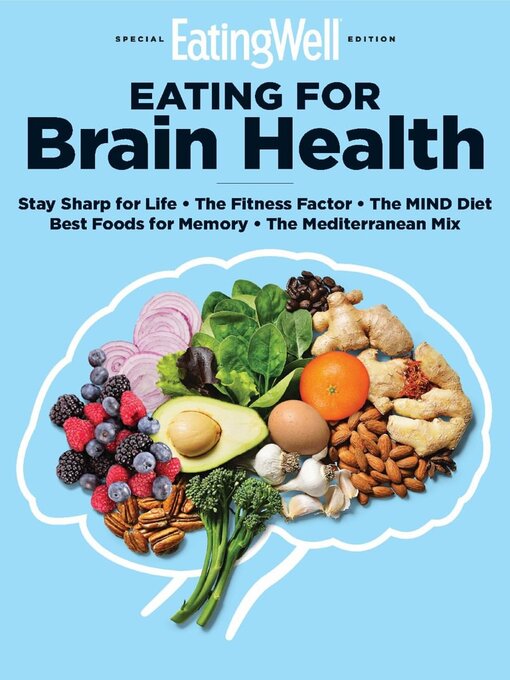
 EatingWell Most Healing Foods
EatingWell Most Healing Foods
 EatingWell 5 Ingredients, 15 Minutes
EatingWell 5 Ingredients, 15 Minutes
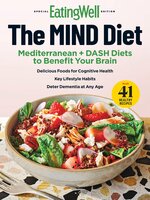 EatingWell The MIND Diet
EatingWell The MIND Diet
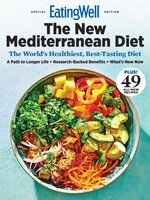 EatingWell The New Mediterranean Diet
EatingWell The New Mediterranean Diet
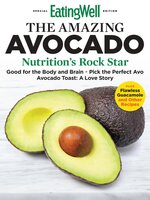 EatingWell The Amazing Avocado
EatingWell The Amazing Avocado
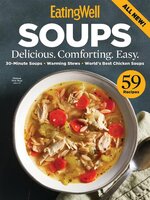 EatingWell Soups 2023
EatingWell Soups 2023
 EatingWell Healthy Reset
EatingWell Healthy Reset
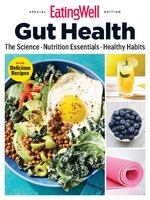 EatingWell Gut Health 2023
EatingWell Gut Health 2023
 EatingWell Anti-Inflammation 2023
EatingWell Anti-Inflammation 2023
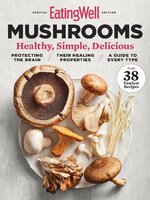 EatingWell The Magic of Mushrooms
EatingWell The Magic of Mushrooms
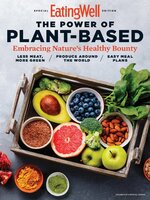 EatingWell The Power of Plant-Based 2023
EatingWell The Power of Plant-Based 2023
 EatingWell The Power of Antioxidants
EatingWell The Power of Antioxidants
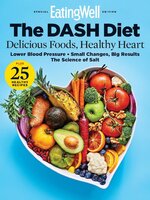 EatingWell The DASH Diet
EatingWell The DASH Diet
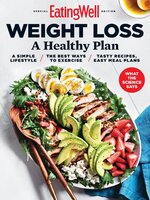 EatingWell Eating for Weight Loss
EatingWell Eating for Weight Loss
 EatingWell Air Fryer Recipes
EatingWell Air Fryer Recipes
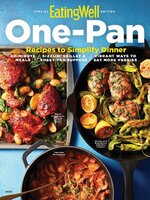 EatingWell One Pan Recipes
EatingWell One Pan Recipes
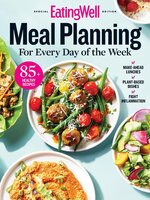 EatingWell Meal Planning
EatingWell Meal Planning
 EatingWell Eating for Happiness
EatingWell Eating for Happiness
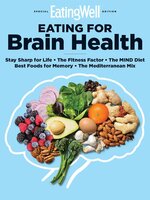 EatingWell Eating for Brain Health
EatingWell Eating for Brain Health
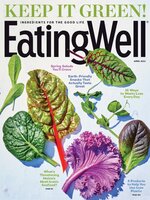 Apr 01 2022
Apr 01 2022
 EatingWell Eating for Energy
EatingWell Eating for Energy
 Mar 01 2022
Mar 01 2022
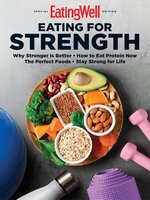 EatingWell What to Eat for Strength
EatingWell What to Eat for Strength
 January/February 2022
January/February 2022
